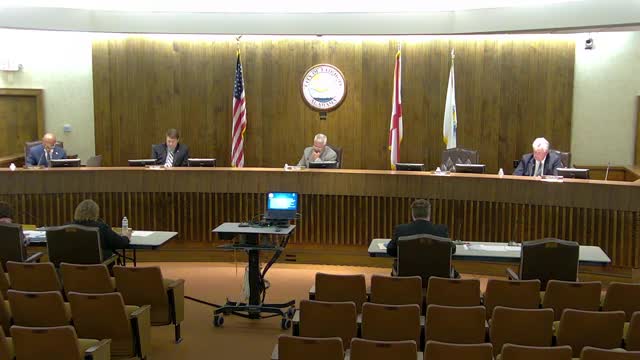Article not found
This article is no longer available. But don't worry—we've gathered other articles that discuss the same topic.
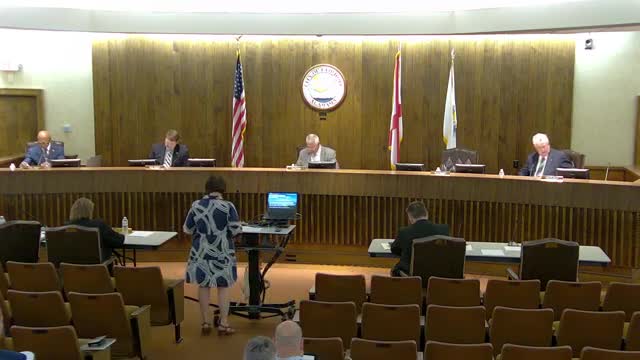
Fairhope council adds agenda item to authorize mayor’s support letters for BEAD subawards
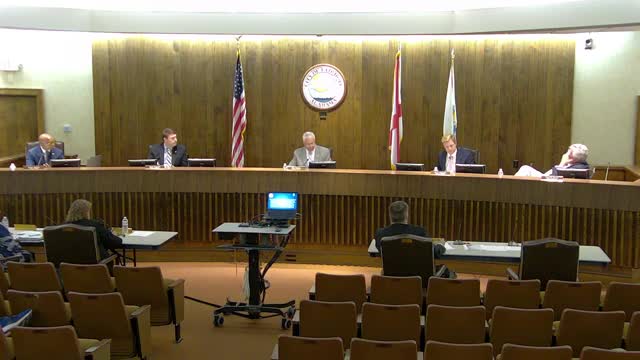
Council honors prior commitment, approves $61,370 8‑inch water main at Portico Simpson
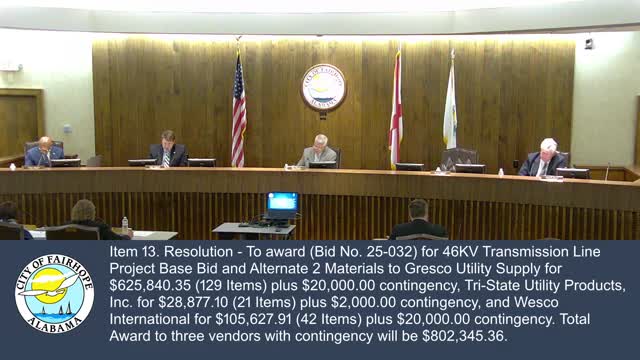
Council clarifies contingency rules, approves 46 kV transmission materials awards totaling about $1.28M
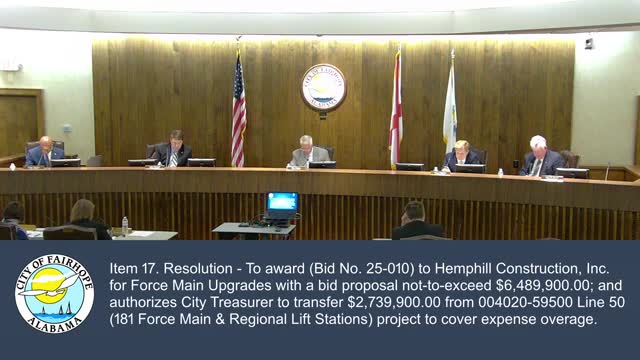
Council approves $6.49M force‑main upgrade contract tied to RESTORE grant program
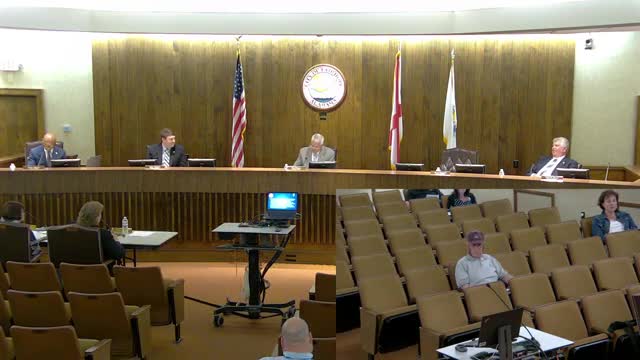
Fairhope approves lease transfer and $6.06 million redevelopment bid for K‑1 Center after securing $3.5M grant
